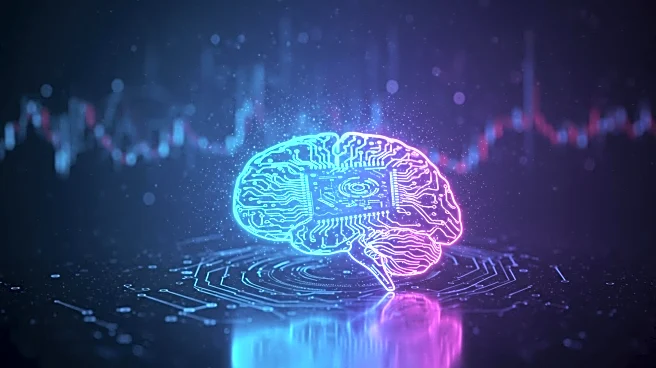What's Happening?
WSP, a Montreal-based construction giant, has announced a $1 billion partnership with Microsoft to accelerate digitization in the architecture, engineering, and construction industry through artificial intelligence. CEO Alexandre L'Heureux stated that this alliance is yielding significant results, with expectations to reduce human output in bidding processes by up to 80%. Despite the dynamic market, WSP's revenue per employee has consistently grown over the past decade, outpacing headcount growth. The firm has not experienced significant election-related disruptions in major markets, including the U.S., and continues to prioritize infrastructure spending. WSP is actively involved in various sectors, including data centers, power generation, and water infrastructure, with notable projects such as the Hampton Roads Bridge-Tunnel in Virginia and a wastewater treatment plant expansion in Ontario.
Why It's Important?
The strategic partnership with Microsoft and the focus on AI-driven processes highlight WSP's commitment to innovation and efficiency in the construction industry. This approach not only enhances productivity but also positions WSP as a leader in adapting to technological advancements. The firm's ability to maintain growth despite political changes underscores its resilience and strategic foresight. The emphasis on infrastructure projects aligns with global priorities, ensuring continued demand for WSP's services. The acquisition of Power Engineers and involvement in significant projects further solidify WSP's position in the power generation and water infrastructure sectors, which are crucial for sustainable development.
What's Next?
WSP plans to continue pursuing merger and acquisition opportunities to expand its expertise and market presence. The acquisition of Lexica and the agreement to purchase Ricardo demonstrate WSP's strategic focus on healthcare, life sciences, and environmental solutions. As the firm navigates a dynamic market, it aims to leverage its expertise to be more selective in project undertakings and enhance its service offerings. The ongoing partnership with Microsoft is expected to further drive innovation and efficiency, potentially setting new standards in the construction industry.
Beyond the Headlines
WSP's focus on AI and digitization raises important considerations about the future of labor in the construction industry. The potential reduction in human output could lead to shifts in workforce dynamics, necessitating new skill sets and training programs. Additionally, the firm's involvement in environmental projects, despite political shifts, highlights the growing importance of sustainability and resilience in infrastructure development. These efforts may influence broader industry trends and public policy, emphasizing the need for environmentally conscious practices.










